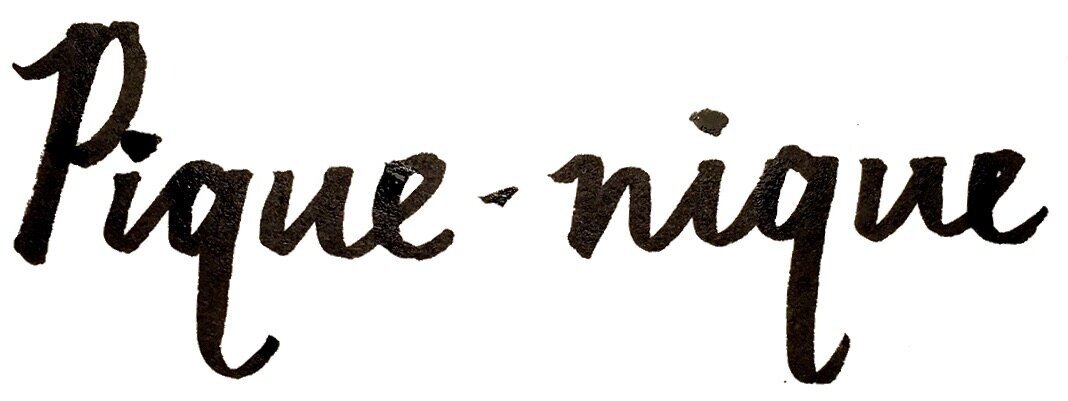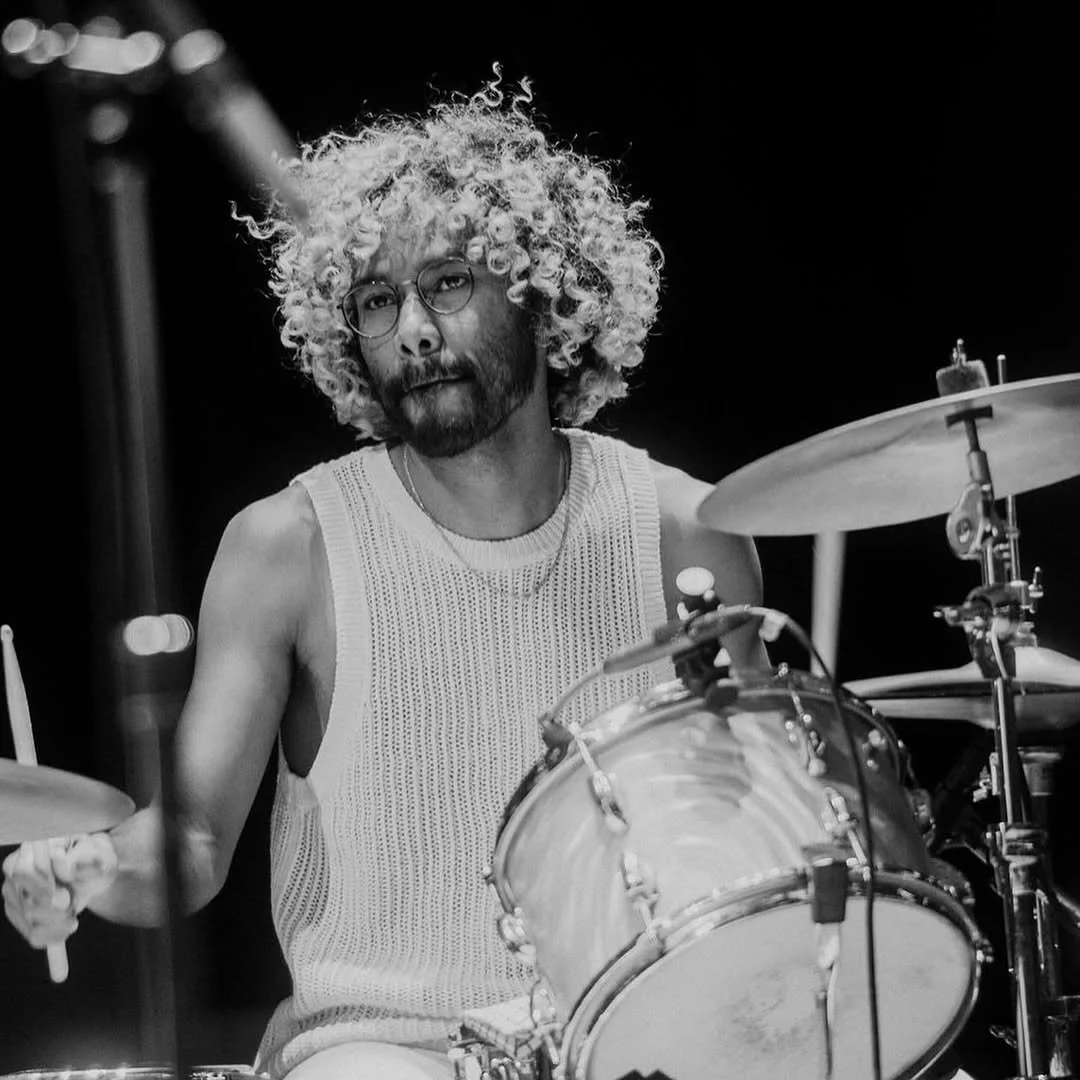Improvisation as a genre with William Alexander
A few weeks prior to William Alexander’s first show of his 2025 Unheard series, we met up with him in a late-night cafe in Greenpoint. Over a steaming pot of tea, we discussed his plans for the series, influences, creative process, and thoughts on the “genre” of improvisation.
Pique-nique: Can you share your thoughts about the series, your inspirations as a musician, and your approach to improvisation?
William Alexander: I think the series is an incredible idea. I'm super honored to have this opportunity. I want to bring the full spectrum of my own history and experience to this series. I think philosophically, improvisation lends itself to many different ideas and sounds.
But within the “genre” of improv, it can start feeling like there's a specific sound, whether atonal, abrasive, chaotic, or ambient. Having spent time deeply immersed in many types of music, especially Black music and rhythmic forms, I'm looking forward to bringing those elements where freedom doesn't necessarily exclude form or exclude time.
Sometimes when people say "it's improvised," there's this idea that it's just going to be chaotic with everyone playing as many notes as possible. Is that truly free? Or is that confined to a particular idea of what improvisation sounds like? I want to reach for all kinds of freedom.
PN: This is exactly what this series challenges. People think "improvisation equals free jazz," but as Kalia [Vandever] said [in one of her Unheard shows last year], you don't have to play all the time. Sometimes it's okay if there's only one person soloing while others go in and out. You can be free within a time signature or by repeating a pattern.
There is no genre. This is your definition of improvisation, and someone else's might be playing all the notes. Neither is right or wrong – it's just different versions.
William Alexander: Exactly.
PN: I think that's what makes this series so special. Each artist brings their own interpretation and background to what improvisation means.
William Alexander: Absolutely. And that diversity is what keeps it exciting. That's the interesting thing – there are different schools with different intentions. I'm interested in these philosophies and when they begin to split. Freedom is doing what you want, so your intention dictates what that sounds like.
PN: As a multi-instrumentalist playing drums, singing, and guitar, do you anticipate playing multiple instruments throughout the year?
William Alexander: Yes, there are different configurations that will lend themselves to me picking up the guitar or getting on the mic. I want to touch on many different things.
PN: Can you walk us through some of your influences and what excites you now?
William Alexander: I've been influenced by so many things – classical growing up, playing violin, then drums with alternative rock and jazz, and singer-songwriter stuff.
One of the most formative influences was playing in Black Church for almost 10 years at an African Methodist Episcopal Church in California. Being immersed in that oral tradition really affected my approach – not just playing, but communicating within the music.
In church, you're not reading music. You're always looking at the music director or organist, always communicating. It feels like an efficient and intimate way of creating because it's always a dialogue. Sometimes that can mess me up in other contexts where musicians are looking at charts, and I'm thinking, "just cue it, just look at me."
Different musical backgrounds can really influence how people approach playing in various contexts. It's interesting to see how these different trainings and experiences shape someone's musical voice.
When I first heard J. Dilla, I just thought "it's a hip hop beat." There was a specific moment when I realized what was actually going on. It's easy to overlook elements in other genres. A jazz musician might say, "I'm going to add ghost notes," but that might take away from how effective simplicity can be.
Sometimes not playing is the most powerful thing. In this age where everything is vying for attention – playing faster, more notes, louder – I like stepping outside of that and being open to everything.
PN: Where did your Brazilian influence come from?
William Alexander: By chance. In high school jazz band, I was asked to learn a "Latin groove" and went down a rabbit hole, finding Stan Getz's "Girl from Ipanema." Then a mix from Prefuse 73 exposed me to Brazilian deep cuts, including Arthur Verocai before he was widely known. Later, playing with my friend Eduardo from Chicano Batman who had spent time in Brazil deepened my appreciation.
PN: It's funny, that “Getz/Gilberto” record was the first record we did for Take Two back in 2018.
William Alexander: That's crazy.
PN: One musician, 20 friends around. Such a masterpiece. We also did a session with Mauro Refosco on Airto Moreira's album “Free.”
William Alexander: Wow. That was a deep one.
PN: Yeah, Greg Caz was playing some records too. He's like an encyclopedia of Brazilian music. When you're approaching sessions with Moki [Lionmilk] or writing your singer-songwriter material, what's your creative process?
William Alexander: It's always evolving. Lately I've been more experimental and open to whatever comes out. With Moki, it's very open – we don't talk much about what we're doing. There are infinite possibilities.
PN: Do you need different mindsets for singing and playing guitar versus drums?
William Alexander: For sure. My solo singer-songwriter sets have forced me to hone my intention and execution. With improv on drums, especially with Moki, I don't think much – it just clicks once we start, and I'm just listening. Guitar improv is a different zone for me; I don't have as extensive an improv history with that instrument.
I used to play in a very improvisatory band called The Concentrates – drums, violin, and cello. Both players had unique approaches – Tylana with Cuban music influence had incredible improv chops, and Peter from a classical background had impeccable technique but was also experimental, running his cello through pedals.
We were adjacent to Son Jarocho music in LA, which has a lot of improv and impromptu vocal harmonizing. There's some of that background I was tapping into that I don't do as much anymore.
PN: Just to wrap up, is there anything you want the audience to take away from the series?
William Alexander: It's about listening, having that experience, and seeing the possibilities of what freedom can sound like – not being a particular thing. Taking the genre out of improv music.
I'm hoping to bring a range of sounds that reflect all the different influences in my background. I think being open to not just atonal or ambient approaches but also to rhythmic and melodic traditions from different parts of the world can really expand what improvisation means. It's exciting to consider all these possibilities and bring them to each performance.
==
For his first edition, singer-songwriter and multi-instrumentalist William Alexander invites the pianist, Lionmilk, the primary solo project of Los Angeles musician/composer/producer Moki Kawaguchi, whose therapeutic compositions blend jazz, ambient, and lo-fi elements to create what he describes as "music to feel less whack to." Tickets.


